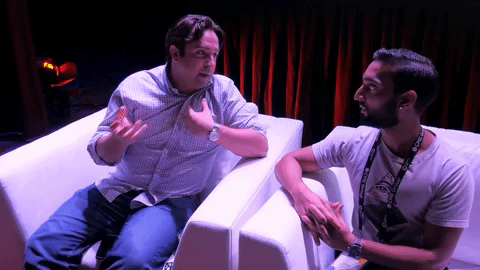We recently asked ConsenSys Capital’s Andrew Keys what he thought the blockchain headline of 2018 would be. He truly did not disappoint:
“Planet Earth recognizes there is a next generation of the World Wide Web”
As we continue our exploration of blockchain technology this month, we thought Keys would be a good resource. He heads up ConsenSys Capital, which includes the East Williamsburg blockchain leader’s venture arm, ConsenSys Ventures, as well as Token Foundry and ConsenSys Capital Management.
Keys was one of the earlier employees at ConsenSys (and was one of the first people I interviewed at Technical.ly, he reminded me) starting there in the summer of 2015. He also started the Enterprise Ethereum Alliance. He remains excited about the possibilities of a world on the Ethereum blockchain. Eliminating middlemen is going to be a big part of that future, he says.
“Instead of Uber as the intermediary between you and the driver that handles the transaction and the rating, at the end we’re going to enter a new world where I’m going to have a wallet, identity and reputation and we will have a smart contract that ensures that when I drive you from Point A to Point B, your escrowed assets are transferred from you to me,” Keys explained on a phone call recently. “And instead of Uber taking 35 percent, the software will take maybe 1 percent to do that work.”
We're commoditizing trust in the same way that in 1996 the internet commoditized how humans communicate.
There’s more, too.
Here are four big questions we posed to Keys:
What’s the biggest challenge?
To quote Steve Ballmer, “Developers, developers, developers, developers. Developers, developers, developers, developers! DEVELOPERS, DEVELOPERS, DEVELOPERS, DEVELOPERS!”
Keys said the biggest challenge facing the Ethereum blockchain is a lack of developers. Because it’s such a new technology, there simply aren’t enough people who know how to code on it yet.
“Educating developers on how to build this, there’s very high demand and very low supply of people able to supply this kind of business logic,” he said.
What’s the first app we’ll all use?
Keys says it’s already here and people have been using it heavily recently. What if the first blockchain application is Bitcoin? According to TechCrunch, 60 percent of Americans have heard of Bitcoin.
“The first app would be the wallets of the world,” he explained. “I think you’re going to start seeing the evolution of this. Instead of us going to iTunes, we’ll be going to artists’ individual sites and downloading their music or content peer to peer.”
Will blockchain and cryptocurrencies be decoupled?
Not exactly, Keys said.
“I think there will be a … flushing out of companies in the blockchain space,” he said, with regard to the number of companies and startups issuing their own tokens in token offerings or ICOs. But the architecture of blockchain startups is built on having a token reward for the processing power it takes to complete the cryptographic checks on blockchain transactions. He compared the blockchain to the early internet, with the Ethereum level akin to the web’s protocol layer and decentralized applications akin to dot-com companies.
“In many cases blockchain-based applications are going to go through many iterations and many may not need the token,” he said. At the protocol level, however, there’s a need for it (rooted in game theory), he explained.
What’s the dumbest criticism of the blockchain world?
Bitcoin frustration, Keys said.
People are too hung up on the price of Bitcoin and not thinking enough about the longer term implications of blockchain infrastructure.
“I don’t think [people] understand that we’re sitting on the next generation of the world wide web,” he said. “Bitcoin was the opening act but the fact that the whole world is watching the price of this one use case, it isn’t recognizing what society could be like in a completely peer to peer fashion.”
Technical.ly’s Editorial Calendar explores a different topic each month. The January 2018 topic is blockchain.
Before you go...
Please consider supporting Technical.ly to keep our independent journalism strong. Unlike most business-focused media outlets, we don’t have a paywall. Instead, we count on your personal and organizational support.
3 ways to support our work:- Contribute to the Journalism Fund. Charitable giving ensures our information remains free and accessible for residents to discover workforce programs and entrepreneurship pathways. This includes philanthropic grants and individual tax-deductible donations from readers like you.
- Use our Preferred Partners. Our directory of vetted providers offers high-quality recommendations for services our readers need, and each referral supports our journalism.
- Use our services. If you need entrepreneurs and tech leaders to buy your services, are seeking technologists to hire or want more professionals to know about your ecosystem, Technical.ly has the biggest and most engaged audience in the mid-Atlantic. We help companies tell their stories and answer big questions to meet and serve our community.
Join our growing Slack community
Join 5,000 tech professionals and entrepreneurs in our community Slack today!


